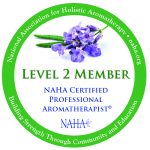The Importance of Meditative Practice
Often when people hear the word “meditation” they attach the metaphysical to it, thinking it’s all “just so much woo woo (a.k.a. “hooey”)”. Many societies — particularly eastern — have engaged in meditative practice for thousands of years. But on the whole, western society really pays little to no attention it. Sure, there are some in western societies who have picked up the practice, but in many cases the attitude toward meditation has carried with it the idea of the mystical, and therefore is often rejected by those who do not have any interest in the mystical or those who have religious beliefs that prohibit the mystical. Many eastern practices do indeed have the mystical, spiritual, and metaphysical component — and meditation is included — but the undesirable components can easily be removed, allowing the practice to become an enriching part of the western society lifestyle. It simply take a little time and some practice; and the rewards will be great.
But I’m Too Busy
I get it. We are all busy. We lead such busy lives that most of us almost never take time to just slow down and be. Our idea of relaxation is often rooted in experiences and “zoning out” in front of a screen of some sort. We rarely truly cease; and we rarely just enjoy quiet. We lead noisy, active lives. But is this really healthy?
The idea of ceasing all activity, focusing on our minds and our bodies, and enjoying almost absolute quiet and stillness is often all but vacant in our thoughts. We are always “go, go, go” and we often “crash and burn” at the end of our days in some way or another. When we do take out the time to “relax” our faces are often in screens, causing our minds to never slow down. We often engage in recreational physical activities that don’t allow our bodies to slow down. Is keeping our minds and bodies constantly active healthy?
In a word, “no.” Our bodies and minds need time to rest. They need time to cease. They need quiet. They need stillness. And one way to provide our bodies these needs is by learning to meditate.
Meditation is not “just so much woo woo.” Meditation teaches us all of the aforementioned principles. It forces us to sit or lie down. It forces us to focus our minds away from all the chatter of life. It forces us to be still. And it forces us to be quiet. When we learn to meditate, we learn to experience calm. We learn to give our minds and bodies the break they both need from the hustle, bustle, and stresses of everyday life.
Mediation can include inner reflection. This inner reflection can include spiritual components or mystical components, or they can simply be left out, and we can just reflect on our lives and our future; or nothing at all. We can use meditation to relieve the anxieties we experience in our daily lives, to help us to deal with issues of depression, and to help us to deal with fears. In addition, we can use the practice to help us get a better night’s sleep, and even to deal with acute or chronic pain.
I Have No Idea Where to Begin!
With all the wonderful things meditation can do for us, you might be asking: “How in the world do I meditate? I have never meditated. I don’t know anyone that meditates. Who can teach me? Is is hard to learn?”
I know it can be intimidating. As I mentioned before, meditation is a part of the way of life in eastern society, but not at all in western society. Since this is the case, it seems to be a mystery to most; and cause a bit of confusion. After all, when something as serious-minded as meditation is embarked upon, it can cause a great deal of trepidation. But it need not be that way at all. Meditation is just something new we must learn, and when we do we will benefit in many ways. We will be able to learn to be calm, quiet, still, and reflective. The benefits to our mental and physical health will be palpable.
Meditation does take some practice, but it is not hard to learn. Because our lives are often so crowded and busy, and because we often have no idea how to slow down completely, we will experience some challenges. One of these is finding a quiet place to settle in. The second is to keep focus, forcing the mind to not wander — and this one can in fact be the most challenging. And third is simply finding the amount of time needed to meditate — in other words, “for how long.”
Begin at the Beginning
The easiest way to begin is to begin at the beginning. Remember, you are a beginner and you will need to find your way as you are guided along. It won’t be easy at first to find the most quiet place, but you will with a little effort. It will not at all be easy at first to focus and keep your mind from wandering. That’s perfectly ok. We all have a learning curve and practice will make perfect. One thing I do caution is to make the beginning mediations brief. Five minutes at a time is both doable in terms of setting time out of your busy day, and it will keep you from becoming frustrated by having to sit still and focus. Meditating for longer periods of time can simply become an exercise in frustration because we are likely to become “antsy”; and when we become antsy, we will find ourselves not at all being relaxed no matter how hard we try. And when this happens, we will simply give up and fail to adopt the meditative practice. If meditation causes us more frustration and anxiety in our lives, why bother right? So, make sure you take it slow. Be patient with yourself. Take baby steps and be willing to learn slowly, but steadily.
Teach Me
Now, having said that, you are likely still saying to yourself “How in the world do I learn the practice?” The answer to that is the wonderful world of what we have affectionately come to know as “apps” — specifically guided meditation apps. There are likely many places on the web where you can find meditations, but “apps” are the best medium for the beginner. Guided meditation apps provided instruction, teaching you what to do, when to do it, and how to do it. There are many guided meditation apps, but the two that I find to be the best are Insight Timer and Calm. Both apps have much to offer, and both have fully guided meditation.
Before I begin, I want to say this: There is no benefit to me financial or otherwise for my suggestions of products below. What I recommend is that which I have personally experienced, and what I want to just pass on to you. My only aim is to pass on information.
Insight Timer is mostly free and has many guided mediations that are sure to help you in your journey to meditative practice. It is the app I personally started using when I decided to embark on the meditative world. There are quite a number of instructors, and you will be able to find one that resonates with you. Although some of the content is free, some of it is subject to subscription fees.
Calm is likely the most popular meditation app at the moment. It offers a trial period, followed by subscription services, but don’t let that scare you. There is a reason that Calm is the most popular app, and if you are willing to pay the $60.00 -per year subscription fee, you will get much more out of Calm than you might from Insight Timer. Calm offers the simplest guided meditations designed to teach you how to easily learn to meditate in small bites. There are 7 day meditations that start off at 5 minutes and can go up to an hour. There are 30 day programs as well. In addition, you can pick from a whole host of other meditations. There are programs that are specifically for sleep, pain issues, grief, and many other issues with which we might be suffering. In all, it is very well designed, super easy to use, and highly instructive. All you have to do is get the app, find a quiet place, slap on some earphones, and allow yourself to be taken on the meditative journey you choose.
Beyond the apps, one of the most valuable pieces of equipment I have found for me is SleepPhones. I often have problems trying to calm my mind and fall asleep. The idea of having wired headphones on my head while I try to do so is not in my comfort zone. There are too many ways that can go horribly wrong, not to mention how uncomfortable they can be if you happen to sleep in certain positions. I personally am a stomach sleeper, and there is no way I would be able to handle wired headphones or earphones. So, I found SleepPhones. They are very thin wireless headphones (the company does offer wired, but why?) that are imbedded in a headband. They offer fleece headbands and headbands that keep you cool; and they come in a variety of colors. I find that I am able to sleep in any position with them and be completely comfortable. I often fall asleep to meditations, so comfort is important. It has been super valuable to me for turning off “monkey brain.”
All in all, we all need to learn to slow down. We hear this all the time, but rarely take it to heart. Meditation is a perfect way to calm the mind and body, and provide us with a clearer mind and calmer demeanor. It doesn’t take a huge chunk of time out of our schedules. As little as five minutes can be very profitable. And sometimes that five minutes of quiet, calm, ceasing stillness can do wonders for us if we are having a particular stressful day, helping us to gain perspective and carry on. It’s not “just so much woo woo” but rather a great way to keep our stress levels in check, attain better sleep, deal with pain, deal with anxiety, and deal with many other things that might be ailing us.
So, give meditation a try. Take a small chunk out of your busy life to recharge. Your body and mind will thank you for it and reward you in more ways than you can imagine.






